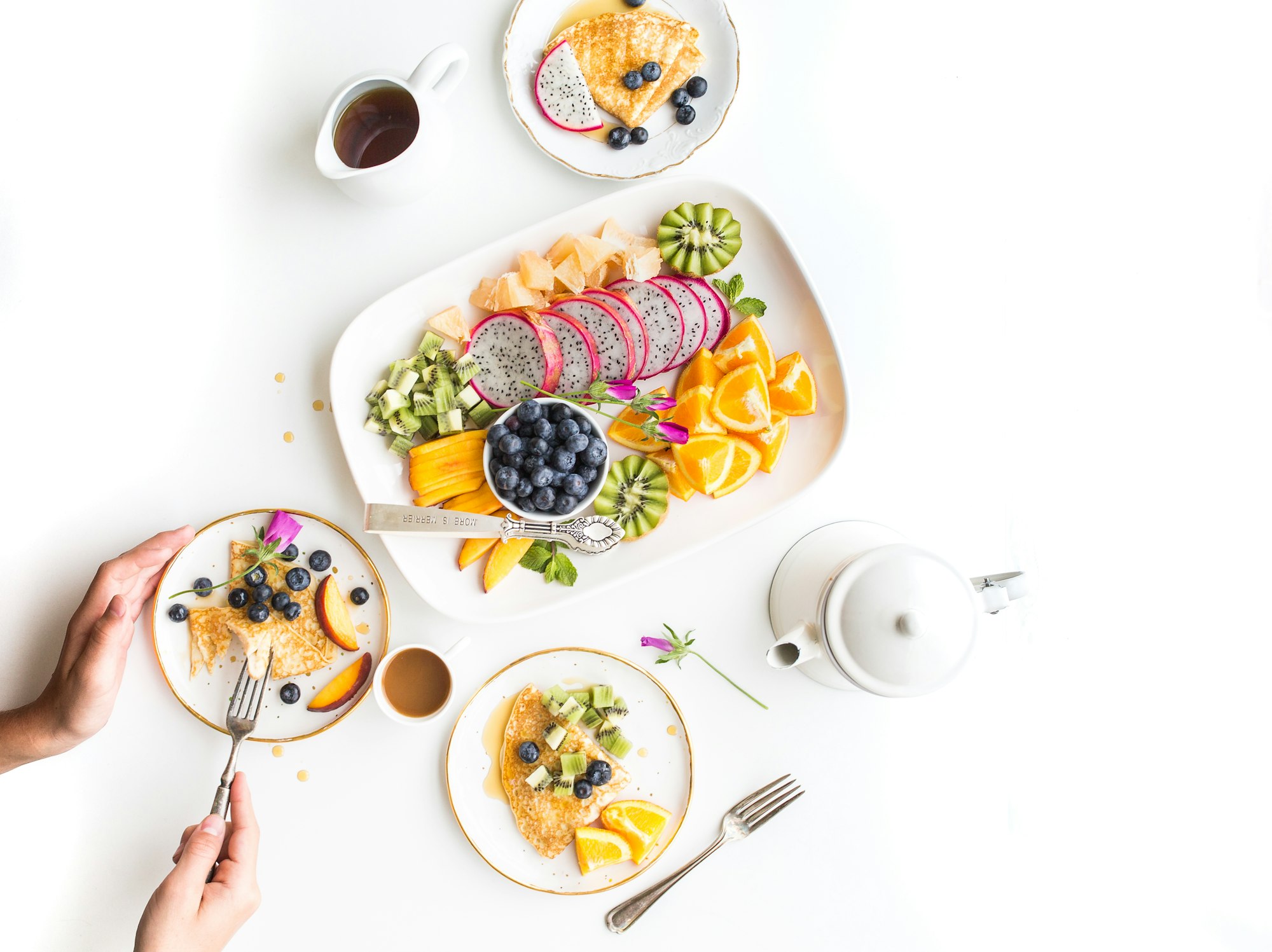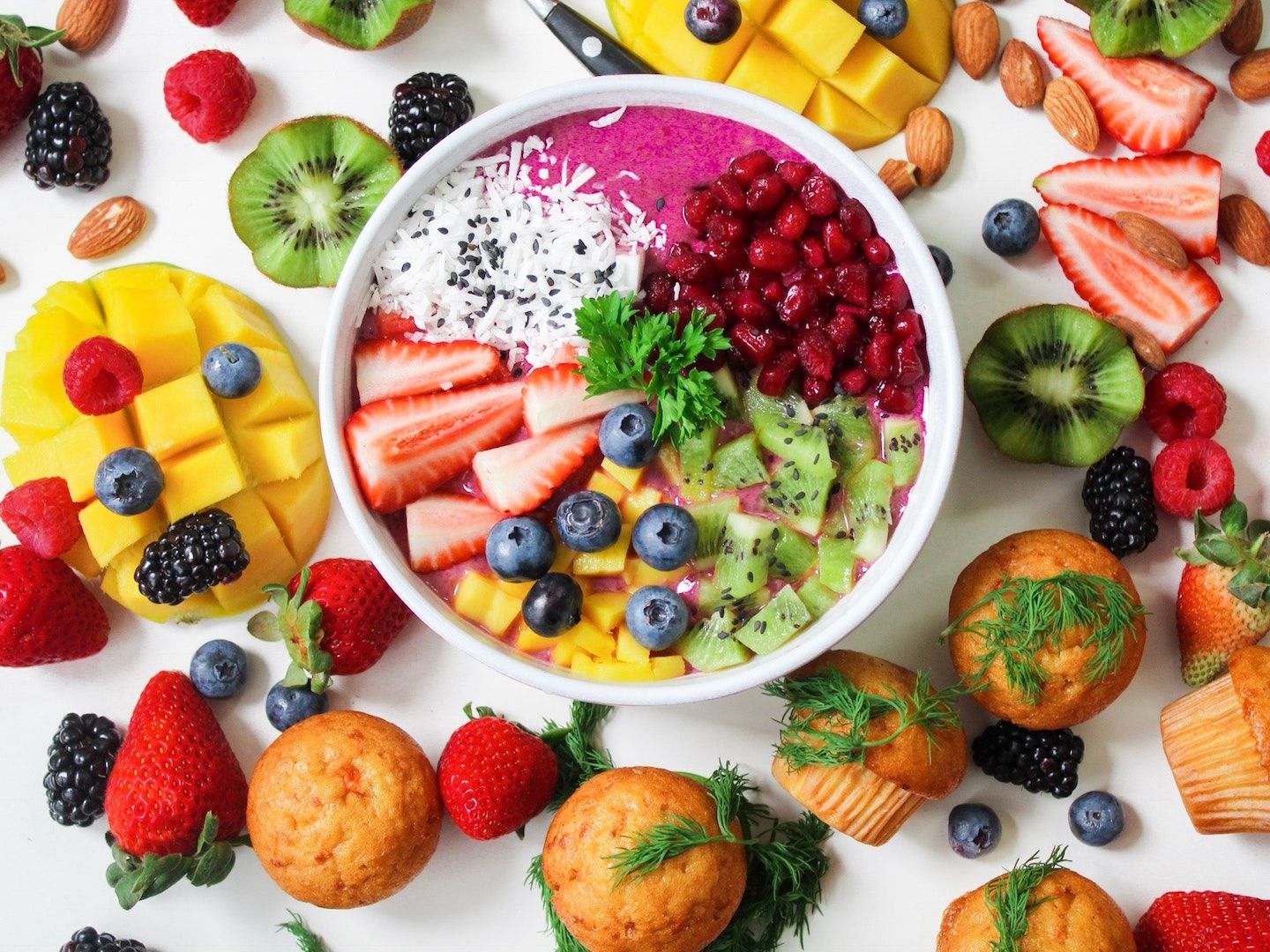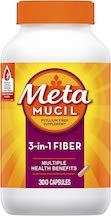30 High-Fiber Foods To Add To Your Diet

High fiber foods are those that contain a large amount of soluble and insoluble fibers. High fiber foods include fruits, vegetables, whole grains, beans, nuts, seeds, and legumes.
Fiber is extremely important for health. It helps keep your stomach healthy by preventing harmful bacteria from growing in your digestive tract. (1).
These foods provide bulk and fill you up without adding calories or fat. They also help you lose weight, lower your blood sugar levels, reduce the risk of heart disease, certain cancer and prevent constipation (2).
The American Cancer Society recommends 25 grams per day. This translates to roughly 24 grams of fiber for women and 38 grams for men (3).
Sadly, most Americans don't meet the recommended daily fiber requirement. On average, Americans get 16.2 grams of dietary fiber every day. (4). You can increase your fiber intake by adding high fiber foods to your diet.
What is fiber?
Fiber is a type of carbohydrate found in plants that helps lower cholesterol levels and prevent heart disease. There are two types of fiber: soluble and insoluble. Both types of fiber are important for good health.
Soluble fiber has been shown to reduce blood sugar spikes after meals and improve insulin sensitivity. It also lowers bad LDL cholesterol and triglycerides, and improves bowel function.
Insoluble fiber is associated with reduced risk of cardiovascular disease and diabetes. It also reduces the risk of constipation, diverticulosis, hemorrhoids, and colon cancer.

Fiber can offer these benefits:
- Cholesterol reduction. Fiber's presence in the digestive tract helps reduce cholesterol absorption. It's especially true if you use fiber supplements, like psyllium fiber. (5).
- Promoting a healthy lifestyle.Fruits and vegetables tend to be low in calories. Fiber’s presence can help you feel full for longer. (6).
- Those who struggle with constipation may want to add fiber to their diets. Fiber helps add bulk to the digestive tract because your body doesn't digest it. It stimulates the intestines.
- Manage blood sugar. It can take your body longer to break down high fiber food. This helps you maintain better blood sugar levels, which can be especially helpful for people with diabetes. (7).
- Reduce cancer risk. Eating enough fiber can help prevent colon cancer. There are many reasons why people eat apples, including that some types may have antioxidant-like effects. (8).
Here are 30 high fiber foods to consider.
1. Pears
The pear is a popular fruit that‘s both delicious and nutritious. It's one of the best sources of dietary fiber.
Fiber content: 5.5 grams in a small, raw pear. (9).
2. Strawberries
Strawberries are delicious, nutritious, and easy to eat.
They are also among the most nutrient dense fruits you can eat, with loads of vitamin C, magnesium, and various powerful antioxidants.
Fiber content: 3 grams for 1 cup (10).
3. Avocado
Avocados are unique fruits. It has plenty of healthy fats.
Avocados are a good source of vitamin C, potassium, calcium, magnesium, vitamin E and various B vitamins. They are also healthy for you.
Fiber content: 10 grams in 1 cup (11).
4. Apples
Apples are among the tastiest and best tasting fruits you can eat. Fiber is also relatively high in them. They're perfect in salads.
Fiber content: 4.4 grams in a medium-sized apple (12).
5. Raspberries
Raspberries are extremely nutritious and delicious. They're loaded with vitamins C and manganese, which help protect against cancer. Add them to your salad dressing.
Fiber content: 8 grams in 1 cup of raspberries (13).
6. Bananas
Bananas are a good source of many vitamins and minerals, including vitamin C, B6, and potassium
Green bananas contain resistant starch, which helps keep your digestive system healthy. Try them in peanut butter sandwiches for added protein.
Fiber content: 3.1 grams in a medium-sized banana (14).
Other high fiber fruits
7. Carrots
Carrots are delicious, crunchy, and very nutritious.
It's filled with Vitamin K helps your bones stay strong; Vitamin B6 helps your brain function; Magnesium helps keep your muscles relaxed; Beta carotene helps your body absorb vitamin A.
Add some diced carrots to your veggie-loaded soup.
Fiber content: 3.6 grams in 1 cup of raw carrots. (17).
8. Beets
Beets are a root vegetable that‘s rich in various important nutrients, including folate, iron, magnesium, copper, and potassium.
Beets are also rich in nitrates, which are nutrients known to have various health benefits related to blood pressure and exercise performance. (18). Try it in a beet salad.
Fiber content: 3.8 grams per cup of raw beets (19).
9. Broccoli
Broccoli is a type of cruciferious vegetable and one of the healthiest foods on the planet.
It’s packed with vitamin C, vitamin k, folate, B-vitamins, potassium, iron, manganese, and antioxidants and has powerful cancer-fighting properties.
Broccoli is also one of the highest sources of protein among vegetables. We like turning them into a salad for various uses.
Fiber content: 2.4 grams per cup (20).
10. Artichoke
The artichoke doesn't usually get a lot of attention. It is high in fiber, an important nutrient for people who want to lose weight. Try them roasted.
Fiber content: 6.9 grams in 1 raw artichoke (21).
11. Brussels sprouts
Brussels sprouts are a type of cruciferous vegetable that's related to broccoli.
They're very high in vitamin K and potassium, and they contain potent cancer-fighting antioxidants. Try roast Brussels sprouts with apples and bacon or drizzle them with balsamic vinegar!
Fiber content: 3.3 grams per cup of raw Brussels sprouts (22).
Other high fiber vegetables
Almost all vegetables contain some amount of fiber. Some examples include:
12. Lentils
Lentils are very inexpensive and among the most nutritious. They're very high in protein and packed full of many important nutrients. Add lentil soup with cilantro, coriander, cumin, turmeric, and cardamom.
Fiber content: 13.1 grams per cup of cooked lentils (26).
13. Kidney beans
Kidney beans are a type of legume. Like other beans, lentils are packed with plant-based protein, vitamins, minerals, and fiber.
Fiber content: 12.2 grams per cup of cooked beans (27).
14. Split peas
Peas are made from the dried, peeled, and split seeds of peas. They’re usually found in split pea soup served with ham.
Fiber content: 16.3 grams per cup of cooked split peas (28).
15. Chickpeas
Chickpeas are another type of legume loaded with nutrients, including proteins and minerals.
Chickpeas form a base for hummus, which is an easy spread to make yourself. It can be used on salads, veggies, breads, and more.
Fiber content: 12.5 grams per cup of cooked chickpeas (29).
Other high fiber legumes
Most legumes are high in protein, fiber and various nutrients. They're one of the cheapest sources of high-quality nutrition.
Other high fiber legumes include:
- Cooked black beans: 8.7 grams
- Cooked edamame: 5.2 grams
- Cooked lima beans: 7 grams
- Baked beans: 5.5 grams (30, 31, 32, 33)
16. Quinoa
Quinoa is a pseudo-cereal which has become extremely popular among health-conscious individuals in recent years. It has many nutrients, including protein and magnesium, among others.
Fiber content: 5.2 grams per cup of cooked quinoa (34).
17. Oats
Oats are among the healthiest grain products on the planet. They're very nutritious. It contains a powerful soluble fiber called Beta Glucan, which has major benefits for blood sugar and cholesterol levels. (35). Oatmeal has become a classic breakfast food.
Fiber content: 16.5 grams per cup of raw oats (36).
18. Popcorn
If your goal is increasing your fiber intake, popcorn may be the best snack you could eat. Air-popped corn is very high in fiber per calorie. If you add a lot of fats, the fiber-to calorie ratio will decrease significantly.
Fiber content: 1.15 grams per cup of air-popped popcorn (37).
19. Almonds
Almonds are a popular type of tree nuts. They're very high in many nutrients including healthy fats, vitamin e, manganese, magnesium. Almonds can also become almond flour for baking with added nutrients.
Fiber content: 4 grams per 3 tablespoons (38).
20. Chia seeds
Chia seeds are small black seeds that are hugely popular among natural health enthusiasts. They're highly nutritious, containing high levels of magnesium, phosphorus, calcium, and vitamin D.
Chia seeds may also be the single best way to get fiber on the planet. Try them mixed into jams or some homemade granolas.
Fiber content: 9.75 grams per ounce of dried chia seeds (39).
Other high fiber nuts and seeds
Most nuts and seeds are high in fiber.
- Fresh coconut: 9 grams
- Pistachios: 10 grams
- Walnuts: 6.7 grams
- Sunflower seeds: 11.1 grams
- Pumpkin seeds: 6.5 grams (40, 41, 42, 43, 44)
21. Sweet potatoes
Sweet potatoes are very filling and have a delicious sweet taste. It has lots of vitamin A, B vitamins, and minerals. They can be used as a tasty bread substitute or base for nachos.
Fiber content: A medium-sized boiled sweet potato has 3.8 grams of fiber (45).
22. Dark chocolate
Dark chocolate is arguably among the world's most delicious food. It’s not just high in nutrients; it’s one of the most antioxidant and nutrient-rich foods in the world.
Make sure to choose dark chocolate that has a cocoa content of at least 70 percent or higher and avoid products loaded with added sugar.
Fiber content: 3.1 grams in a 1-ounce piece of 70–85% cacao (46).
23. Celery
Celery has been shown to help reduce cholesterol levels and may lower blood pressure. Celery contains potassium which helps maintain healthy nerve function and muscle contraction. Celery is also rich in vitamins B6 and C. Add some in your pasta sauce.
Fiber content: 5 grams per 1 cup
24. Okra
Okra is a vegetable with a long history of use in traditional medicine. The seeds are used to treat diarrhea, dysentery, and other gastrointestinal disorders.
Fiber content: 3.2 grams per cup
25. Eggplant
Eggplant is an excellent source of many nutrients including vitamin B6, vitamin C, potassium, magnesium, iron, zinc, and copper. It has a low glycemic index score and is high in antioxidants.
Fiber content: 3 grams per 1 cup
26. Cabbage
has been shown to reduce cholesterol levels and lower blood pressure. It contains vitamin C which promotes healthy skin and bones. It’s low in calories and fat.
Fiber content: 2 grams per 1 cup
27. Collard greens
Collard greens has a lot of vitamins, minerals, and nutrients that help keep you healthy. They also contain a lot of fiber which helps you feel full longer. Eating collard greens is one of the best ways to increase your fiber intake.
Fiber content: 8 grams per 1 cup
28. Cucumbers
Cucumbers are rich in dietary fiber which helps lower cholesterol levels and prevent constipation. They are low in calories and contain vitamins A and C. Add some to your everyday salads.
Fiber content: 2 grams per 1 cup
29. Peppers
Peppers contain large amounts of vitamin C, which helps prevent cancer. They also contain antioxidants, which help fight against free radicals that cause cell damage. Finally, they contain fiber, which helps keep you full for longer periods of time. Add some to your salads.
Fiber content: 2.5 grams per 1 cup
30. Zucchini
Zucchini is a great source of vitamins A, C, E, K, B6, folate, potassium, magnesium, iron, copper, manganese, phosphorus, zinc, selenium, and vitamin D. It also contains dietary fiber, which helps reduce cholesterol levels.
Fiber content: 8 grams per 1 cup
Final Thoughts
The fiber found in fruits and vegetables has long been touted as one of nature's most powerful disease fighters.
Fiber also helps regulate blood sugar levels, reduce cholesterol, prevent constipation, help with weight loss, and promote regularity. It lowers cholesterol levels, reduces blood pressure and may even help prevent cancer.
In fact, the U.S.D.A recommends eating 25 grams of fiber daily. Yet only about half of Americans eat enough fiber each day. Add some of these foods to your diet to help boost your fiber intake.


